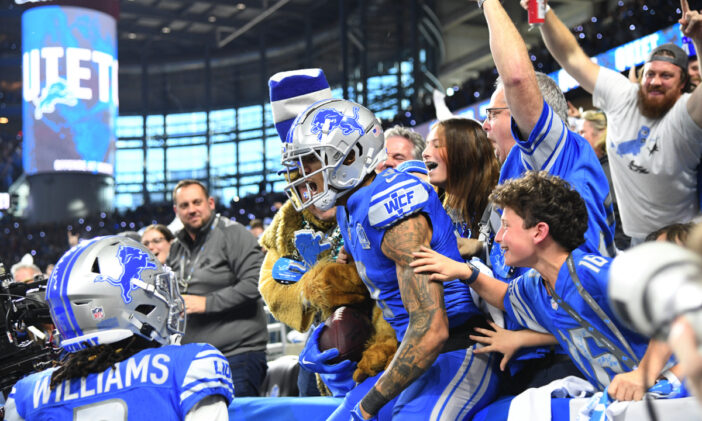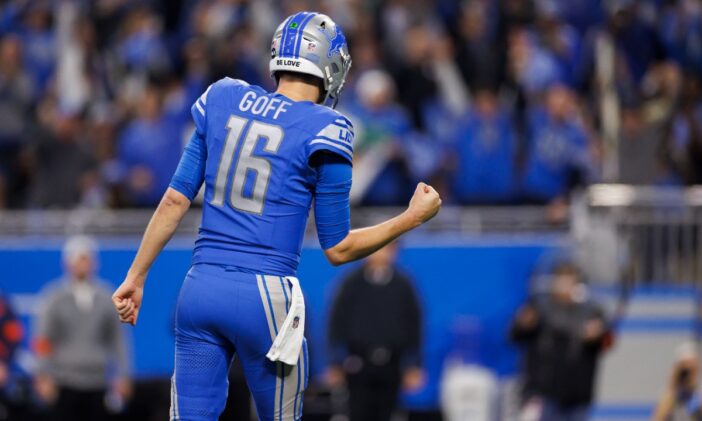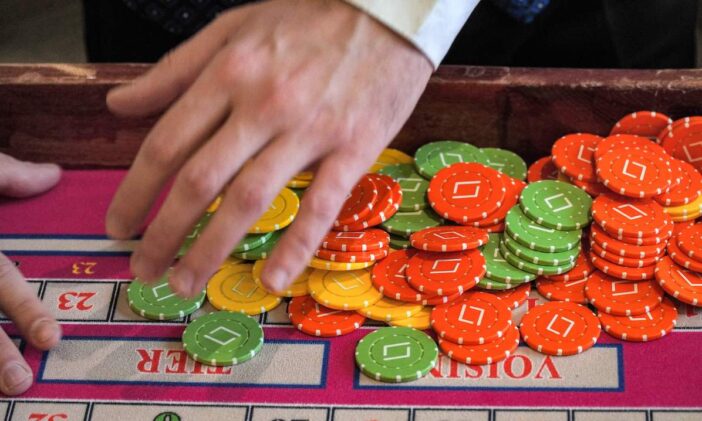The Michigan Gaming Control Board launched a multimedia PSA campaign in March called “Don’t Regret the Bet,” which sought to educate Michiganders about the warning signs of problem gambling while also providing them with tools to gamble responsibly and seek help if things got out of hand.
“Don’t Regret the Bet” was among the honorees at the Platinum Viddy Awards in August, with the recognition coming a little more than a month after the state legislature approved $3 million in continued funding for the campaign in June.
With September designated as Responsible Gaming Education month by the American Gaming Association, MI Bets spoke Tuesday with the MGCB’s Responsible Gaming Section manager, Sandra Johnson. The Q&A below has been edited for clarity and brevity.
MI Bets: Could you talk about how you came to be a high-ranking legal gambling official in state government, and maybe share any personal experience with gambling that’s had an impact on your work.
Sandra Johnson: I began my career with the MGCB in 1999. Legislation had just recently passed legalizing casino gaming in the city of Detroit. I really didn’t have a background in gaming. I don’t consider myself a gambler. I knew about the gaming control board. It was very new to a lot of people in the state of Michigan, so it was an intriguing opportunity.
The mission of the board was to ensure the conduct of fair and honest gaming to protect the citizens in this state. I developed an interest in the disassociated persons list law. That law is designed to help those who believe they have a problem with gambling and place his or her name on this list. I have a passion for helping people and providing customer service. I’ve had an opportunity to work long term in this particular section. It’s been a wonderful opportunity to connect with individuals where I can provide meaningful resources and hopefully become a source of comfort.
The MGCB and King Media were recently awarded a Platinum Viddy for their “Don’t Regret the Bet” campaign. Do you know of any other state-sanctioned problem or responsible gambling campaigns that were in the mix for this honor?
It was an honor to be recognized. This year, the international competition received more than 2,500 entries from the U.S. and Canada and 17 other countries. It would be difficult to say if there were other campaigns like ours.
For the “Don’t Regret the Bet” campaign, how much of a priority was it to find a Michigan-based agency to collaborate with?
As a state agency, there are protocols in place when we’re looking to select vendors. There were certain criteria we were looking for — we wanted to target Michigan residents who had a problem with gambling, give the public tools, and also to let people know that help was available and to let people know that the Michigan Gaming Control Board takes responsible gambling very seriously.
King Media is committed to meaningful work with more than two decades of experience. Their results really speak for themselves. Their client portfolio is very diverse. They’re effective at helping us move the needle and raise awareness about responsible gaming. They know the Michigan market very well. For us, they just made sense and it was a good fit.
How important was it to spotlight both problematic and responsible gambling behavior in the “Don’t Regret the Bet” campaign, versus just focusing on one or the other?
That was very crucial to spotlight both rather than just focusing on one or the other. It encourages open discussion about addiction and also mental health issues, including social isolation. Spotlighting responsible gaming behavior is equally important because it helps to dispel the negative stereotypes and perceptions surrounding gaming as a whole. We do need to talk about both types of behavior, because we create a more comprehensive narrative when we do so. It’s one that acknowledges the potential risks while also celebrating the positive aspects of gaming.
In your travels and research, what have you come to learn about how gamblers in Michigan might differ from those in other states?
It’s kind of difficult to generalize about all gamblers in Michigan and other states. There are some key factors, however. For example, each state has its own set of laws and regulations. Michigan has legalized online sports betting, and it’s a bit earlier than other states. Another factor to consider is the availability and proximity of gaming establishments. We have a relatively high concentration in Detroit and through tribal establishments. And now, of course, online casino gambling is available to people wherever they are.
Culture and traditional values of a region can affect gambling behavior. When you look at Nevada and New Jersey, you can see how deeply ingrained gaming is there. It’s important to remember that these are just general observations. Gambling behavior is affected by so many factors, irrespective of what region people live in.
Now that “Don’t Regret the Bet” has been approved for another round of state funding, are there plans to tweak or add components to it, or will it be most effective to keep hitting the public with the current information?
Like with any brand recognition effort, there’s value in repeating the same message. Repetition helps reinforce our message to prevent gambling problems before they develop. So the more exposure we can give to this integrated marketing campaign, not only do we better our chances of people seeing or hearing about it, but we also hope they can remember it and recognize that it’s relevant. Repetition can also build behavior change. The more consistently repeated we can make our message, the better the chances that it can be ingrained all the time.
What sort of measuring sticks do you have in place to determine whether your messaging is having an impact and reaching the right people?
The legalization of gambling in Michigan brought along with it an onslaught of pro-gambling advertising. So we turned to King Media to kind of combat this and warn the public about the potential dangers of gambling. King Media experts are constantly researching different audiences and target markets and tailoring our advertising efforts accordingly. They also provide us with weekly updates on different metrics and those reaches. The campaign continues to exceed our expectations and establish benchmarks, so we know that it’s having an impact.
September is Responsible Gaming Education Month. MI Bets wants to remind all bettors to practice safe bankroll management and to acknowledge if gambling is interfering with personal relationships. For more information, please reference our responsible gambling hub.
Photo: Raymond Boyd/Getty Images





